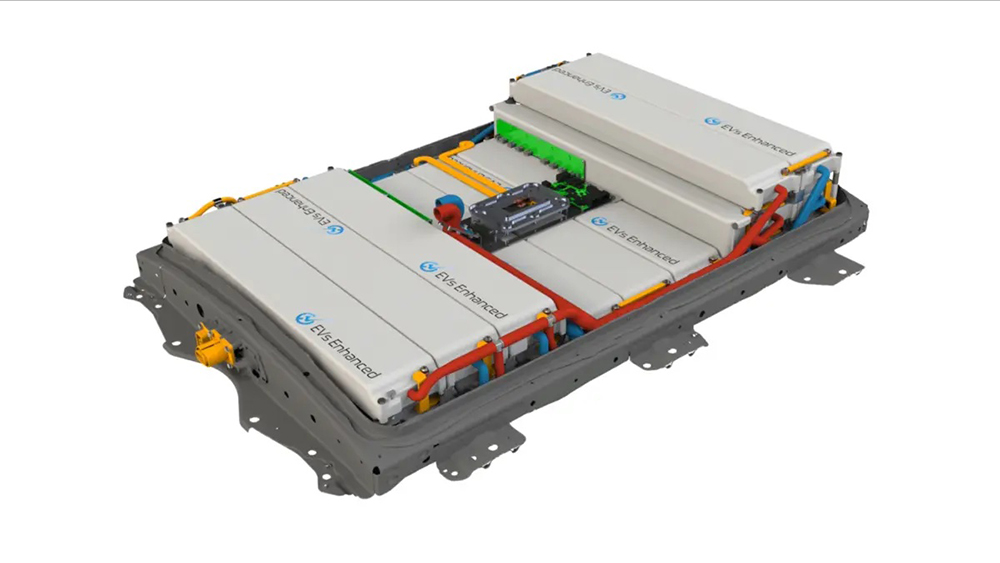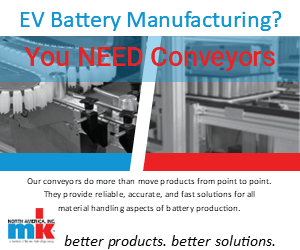The Nissan Leaf is a historic and much-loved vehicle. First-generation (2011-2016) Leafs lack the range that current EV buyers expect, but thousands of owners (including your correspondent) still find them to be delightful daily drivers.
One of the many nifty things about EVs is that it’s possible to replace a degraded or damaged battery pack and extend the life of the vehicle. Now New Zealand-based EVs Enhanced plans to introduce a replacement Leaf battery pack that offers better performance than the original pack. “By applying current technology, it is possible to make these vehicles significantly better, faster, and with longer range than when they were new,” says the company.
Unlike most EVs, which use some form of liquid cooling in the battery pack, the Leaf has an air-cooled battery. This usually works fine, but it can prove inadequate in very hot regions, and can cause issues with DC fast charging. The EVs Enhanced 16 Blade battery uses an active thermal management system, and has been designed to fit within the original Nissan battery pack enclosure.
The 16 Blade battery will be available for all 24, 30 and 40 kWh Leaf models, from 2011 to the latest model year. Beginning in March 2023, the company will offer support for 2013 models with 24 and 30 kWh packs, and other configurations will follow. (Leafs originally fitted with a 62 kWh battery won’t be supported due to physical mounting differences.)
The 16 Blade battery will come in three variants, featuring different battery chemistries and different performance characteristics. The initial Green variant will offer a long-lifespan LFP chemistry and a capacity of around 40 kWh. The Blue variant offers a capacity of over 70 kWh for maximum range. The Red variant will be for high-performance applications.
EVs Enhanced says the 16 Blade’s active thermal management enables it to achieve consistent DC fast charging rates. With a stock 40 kWh Leaf battery, the charging rate tapers quickly once the state of charge surpasses 50%. The 16 Blade can accept peak current up to an 80% SOC, which reduces total charging time.
The Leaf has theoretically always been capable of bidirectional charging using the CHAdeMO fast charging standard (a bidirectional charger is required). “16 Blade GREEN with its long-lifespan LFP chemistry means that V2G applications will be a very practical option for Leafs fitted with this battery solution,” says EVs Enhanced.
I’m sold, where do I order? Well, it sounds like it will be a while before the new replacement pack is widely available. It will go on sale first in New Zealand, then in Australia, and the battery enclosures will be assembled by licensed local partners. “We’re planning for Australia to be our test case for supplying 16 Blade Green in kit-set form where the finished battery packs will be assembled there by a team that we’ve trained to build the product to the high standards that we expect,” says the company. “Because we re-use the original battery enclosure when creating a new 16 Blade pack, it is most efficient to have the pack enclosure modifications and assembly completed relatively close to where the end customers are.”
“The availability of 16 Blade in your country will depend on us reaching sufficient production volumes to meet demand as well as regulations in your country, but also on a company [that is properly trained] close to you.”
Furthermore, the 16 Blade isn’t being marketed as a cheap aftermarket replacement, but rather as a premium upgrade. “Our target sale price for 16 Blade Green [is] approximately a third of the cost of a new 40 kWh Leaf.” The company won’t announce a price until it starts accepting orders. “Nobody should be under any illusion that a finished 16 Blade Green pack will undercut the retail price of $11,225 that Nissan USA charges for a new but inferior 40 kWh battery. Our focus from the outset has been on making a superior product with a better design leading to improved performance and a longer life-cycle.”
Source: EVs Enhanced via CleanTechnica




















































